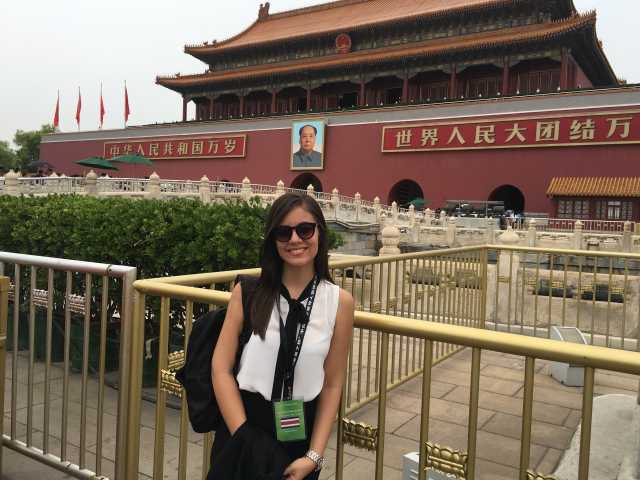Sino-Latin American Relations: Citizen Diplomats Building a Bridge to the Future
| Date: | 23 August 2017 |
| Author: | Silvia Cortés |

In 2015 Silvia Cortés won the MA Thesis Award East Asian Studies for her master's thesis: "China's Public Diplomacy in Latin America".
People-to-people diplomacy – or citizen diplomacy - refers to the active participation of individuals from different countries in the building and enhancement of international relations, by sharing ideas and engaging in cultural exchanges that may even find solutions to common challenges. Although official exchanges have been, and still are, the most popular kind of international representation, public diplomacy mechanisms should not be underestimated. All in all, international relations in this day and age of global interconnectivity might be a bit difficult without solid public support.
China’s aim for a multipolar world order has come along with the implementation of a series of foreign policy initiatives, including a considerable number of people-to-people exchanges directed to every region in the world. As part of its strategy towards Latin America, “Bridge to the Future” was an initiative proposed by President Xi Jinping during his visit to Latin America in July 2014. It consists in a training program for Latin American young leaders that aims to strengthen mutual knowledge and friendship with their Chinese peers so as to deepen their bilateral cooperation in different realms.
The “Bridge to the Future” program plans to invite 1000 young leaders from Latin America and the Caribbean to China during the timespan of 10 years (100 each year, from 2015 until 2024), covering all member countries of the Community of Latin American and Caribbean States (CELAC for its acronym in Spanish). This is the reason why this program is included in the China-Latin American and Caribbean Countries Cooperation Plan (2015-2019) approved during the First Ministerial Meeting of the China-CELAC Forum, which took place in Beijing in January 2015. The Chinese institution in charge of organizing this program is the All-China Youth Federation.
This summer I had the privilege to represent Costa Rica during the third edition of the program and share this experience along with 99 outstanding Latin American young leaders. In two weeks we visited four cities (Beijing, Xuzhou, Nanjing, and Shanghai) and, besides getting a cultural and anthropological Chinese experience, we met with representatives from different government institutions, companies and organizations to learn about current political affairs, economy, society and diplomacy in China.
We were divided into three groups: social, economic and political. I belonged to the social group, mostly integrated by really talented students and academics whose research fields of interest involved different aspects of the Sino-Latin American relations. One of the main activities of the group was the Dialog between Young Chinese and Latin American Researchers, in which we discussed different ideas. As a matter of fact, the people-to-people diplomacy topic had its own session, putting special emphasis on its relevance within the current relation between China and the region, aside from the economic cooperation received from China, which is usually the first thing that comes to mind when thinking about the building of cooperation mechanisms between both parties.
Recognizing the importance of non-economic mechanisms of integration is really significant since citizen exchanges are starting to be considered as a simple but effective approach for countries wishing to build and enhance their international relations, and China is more than aware of it. Furthermore, it entails the creation of citizen diplomats, making it a win-win situation for the countries involved. By participating in this kind of programs, the individual citizens engage as representatives of their countries and immediately become responsible for relationship-building and the foundation for future dialogue and understanding in different realms.
Living a citizen diplomacy experience like this one after having researched Chinese public diplomacy towards Latin America for my Master’s thesis and subsequent academic work, made me comprehend -in situ- China’s efforts and assertiveness in this subject and gave me a broader perspective about it that otherwise I wouldn’t have discovered. The standpoint about China takes a complete turn once you have the opportunity to actually be there, walk down the streets of overwhelming cities, learn to bargain in the markets, taste its original food, and even have meaningful conversations with the locals.
Meeting with official representatives was indeed valuable, but it’s easy to see the actual impact individual citizens have on foreign relations, and how they complement traditional diplomacy as we know it. People-to-people diplomacy initiatives reveal that, regardless of the distance and the differences in language and culture, compromised citizens have far more common interests and are more eager to reach joint solutions than most would ever expect.
Any determined nation aspiring to expand its global influence in the current world order should start looking to its own people, while leveraging from cultural competencies and technological tools that can be useful in bringing nations and people together.

